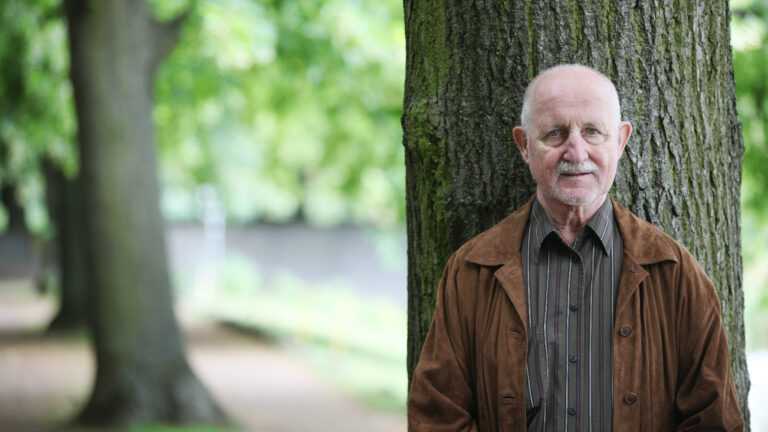Resilience is an often used word in the mental health field, but its definition is broad. One way I often think about the meaning of resilience is “how quickly we can get back to our steady state after the air has been knocked out of us, when we must push through life circumstances that challenge our very being.”
My resilience was tested recently as I attended the wake for a teenager who took her own life after years of struggle. How does a young person come to feel so much pain that she must cut short her own precious life? I feel powerless, humbled, deeply saddened and a bit haunted by the images of that wake. But like other social service and mental health professionals, I must keep coming back to work to walk alongside those who live in daily pain and stress.
Overwhelming Stress
Staff throughout Wilder have shared with me their own experiences with secondary traumatic stress. An administrative staff member transcribed descriptions of a rape in a therapy session that she could not remove from her mind. Front desk staff see people coming unglued in waiting rooms with the smallest of stressors such as a late taxi (a common sign of trauma exposure). A Child Guidance therapist lays awake at night with worry about a runaway teen. A Kofi staff member cares about a struggling young African American boy and feels powerless to help in world stacked against him.
We need resilience. From forty years of research, we know the individual and family features of one who can bounce back: an ability to reflect, view the self as strong and manage strong emotions. We know that it helps to have someone you can trust: a mentor, someone who values your initiative and who provides consistent support and challenge.
Core Skills for Resilience
I draw the most comfort in my own distress from the findings of the Resilience Alliance Project that studied how New York City’s child protection workers managed after the stressors of 9/11. Researchers offered three core skills to be taught, coached and mentored within staff working in trauma-exposed organizations:
- Optimism: The ability to reframe events and focus on the best outcome with clients
- Mastery: The ability to regulate one’s own stress and do self-care
- Collaboration: The ability to not isolate despite the pull toward survivor mode and use mutual support in the workplace.
I take heart in that fact that Wilder, on the path to becoming a trauma informed organization, is systemically recognizing the paradox that caring makes us good at what we do. We must care, feel our client’s stress, hurt, and be supported to care again. This is called compassion satisfaction.
At Wilder, we practice compassion satisfaction by gathering in reflective supervision groups where we can talk about the impact of clients on us in order to find our optimism again. We do this by collaboratively walking the Labyrinth outside our building, working on Mobile Market projects together and hearing inspiring speakers.
Building Mastery
I hope our final training in this years’ attachment and trauma training series, “Mastering the Details: Blending Attachment and Trauma Treatment in Community Mental Health,” will infuse participants with a sense of how they can build mastery in what they do through being better able to set realistic goals, thinking about their trauma clients from a strength and cultural wellness perspective, and continuing to learn and grow. We are in this together.
I arrived at my desk the day after the wake and found roses on my desk from a colleague who knew what I was going through the night before. That is resilience in the face of trauma.
Krista Nelson coordinates the Attachment and Trauma Training Program at the Amherst H. Wilder Foundation.



